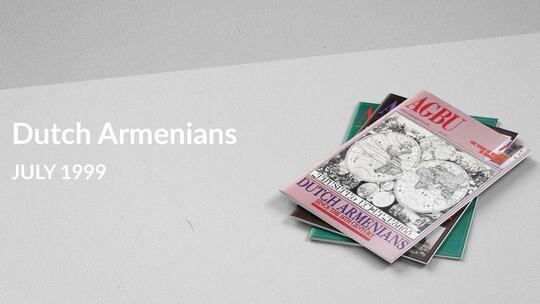by David Zenian
There are no Armenians living in Shirnak now, but for decades until the mid-1960's, the remote Kurdish town in the southeastern corner of Turkey near the border with Iraq was home to a community of about 600 Armenians, trapped in a time capsule and effectively cut off from the rest of the Diaspora and the world.
They lived in a cloistered community that was at the mercy and under the de-facto control and protection of local Kurdish feudal lords. They were second class citizens with no access to education or contact with the outside world.
